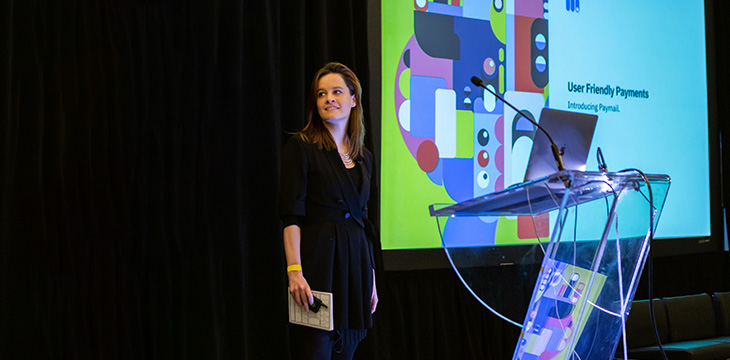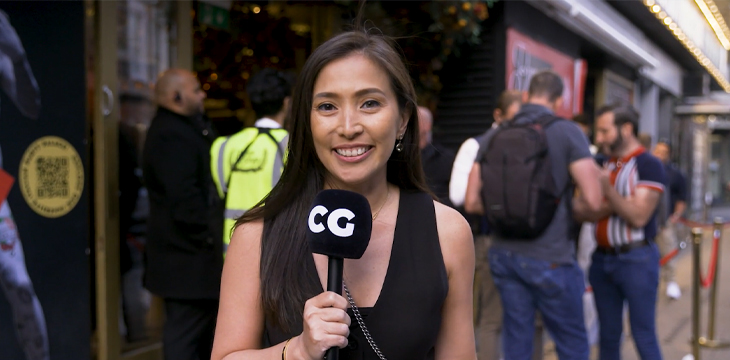|
Getting your Trinity Audio player ready...
|
The next big step in Bitcoin adoption will be in making the working parts that makes it function disappear, and to make transactions appear to work like magic. That was the key message from Maria Eugenia Lopez, senior UX designer of Money Button, during her speech discussing Paymail at CoinGeek Toronto 2019.
To understand why this is necessary, two important factors to understand are how users approach technology, and how technology adapts over its life cycle. The first wave of people to jump on a technology, early adopters, get excited about the best technology. But to win over the rest, the technology needs to be adaptable to their needs. “We have to build technology for all people,”(2:18) Lopez explains.
Lopez showed several examples of how this has affected products previously in history. Thomas Edison pushed phonograph cylinders, while Emile Berliner marketed technically inferior, but more consumer friendly gramophone discs, which eventually won out. Microsoft’s Xbox One ambitiously tried to introduce a new way of gaming that would be cumbersome to consumers, while Sony’s Playstation 4 stuck to the tried and true and has won its current generation.
She then turned to the current world of Bitcoin, where an example using The Simpsons’ Mr. Burns shows that no matter how easy it is to understand who Mr. Burns is, it would be ridiculously hard to explain to a new adopter how to send him a transaction. The key is not in making them understand, but in adapting the technology into something they can use. “Adoption is not reached by talking to those who already understand it,” she noted. (7:11)
To understand this, Lopez walked the crowd through the three stages of technology. Early adopters are excited about a new technology, and will do anything to use it, including how to code complicated transaction scripts to send Bitcoin. Investors and pushers, where the state of Bitcoin currently resides, features businesses and developers who are building applications to push the technology forward. Finally, late adopters just want the thing to work for them so that they can get on with their life.
She explained that the key to adoption isn’t in educating these late adopters, but by listening to what they need to get on board. Explaining to them the dynamics of how the mempool works, how many validations a transaction needs, or other aspects of Bitcoin is wasting time. They are happy to perceive it all as magic, so long as it works.
To end the speech, Lopez showed that from those early days of Bitcoin adopters writing their own script, things got easier as QR codes and easy to use wallets were introduced. Now, with Paymail having arrived, we are at a stage where late adopters can use Bitcoin SV (BSV) as easy as email, and send Mr. Burns $10 by typing his address and hitting send. Late adopters are finally arriving.

 02-21-2026
02-21-2026 




